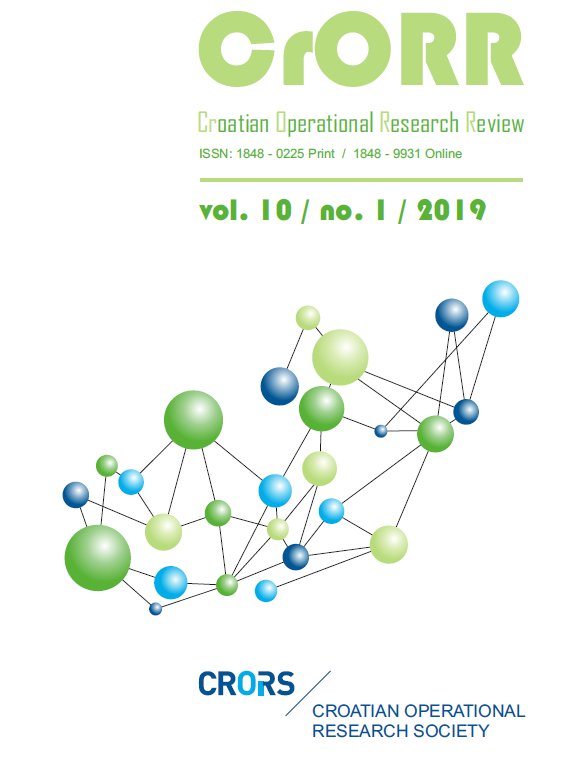The analysis of the contextual variables affecting the fiscal rules efficiency in the EU
Abstract
Fiscal rules are among the cornerstones of macroeconomic policies in the European Union, both on the national and the supranational level. The importance of enacting and conducting the fiscal rules has become apparent after the expansion of public debts and budget deficits in the period of the global financial crisis. Besides the supranational rules, governments impose national fiscal rules in order to fulfill the convergence criteria for public debt and the budget deficit. Still, there is an open question on their influence on other economic parameters. This paper examines contextual variables that influenced the efficiency of implementing fiscal rules in 28 European Union countries. We observe the period of the last financial crisis and its aftermath when most of the countries introduced new or adjusted existing national fiscal rules, using two-stage Data Envelopment Analysis (DEA). The main goal of the paper is to study the impact of contextual variables on fiscal rules’ efficiency scores. In the first stage, we specify the DEA model to estimate the relative efficiency for each observed country in each year in the period from 2008 to 2016. After that, in the second stage, the efficiency scores are regressed on several contextual variables to observe the factors that explicate the variation in DEA-efficiency.
Downloads
Published
Issue
Section
License
- Authors retain copyright and grant the journal right of first publication with the work simultaneously licensed under a Creative Commons Attribution License that allows others to share the work with an acknowledgement of the work's authorship and initial publication in this journal
- Authors are able to enter into separate, additional contractual arrangements for the non-exclusive distribution of the journal's published version of the work (e.g., post it to an institutional repository or publish it in a book), with an acknowledgement of its initial publication in this journal.
- Authors are permitted and encouraged to post their work online (e.g., in institutional repositories or on their website) prior to and during the submission process, as it can lead to productive exchanges, as well as earlier and greater citation of published work (See The Effect of Open Access).


